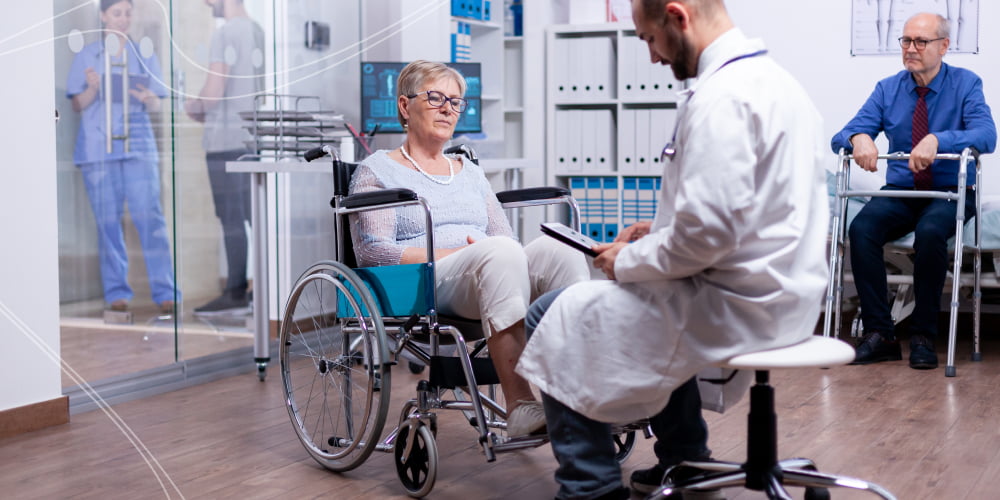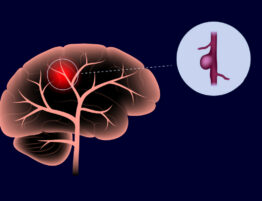Hypokinesia (Greek “from below” + “movement”), also referred to as bradykinesia, is a state of the body in which insufficient motor activity is observed, which leads to a limitation of the pace and range of movements. Motor activity worsens against the background of early mental and neurological disorders – Parkinson’s disease and other extrapyramidal syndromes. It is reported by approximately 98 percent of patients.
Hypokinesia and hypodynamia are often considered synonymous words, but there are differences between them. So, hypodynamia is a consequence of prolonged hypokinesia and manifests itself in the form of a decrease in muscle strength. By itself, it arises due to a forced decrease in motor activity, for example, during the period of adherence to bed rest, with a sedentary lifestyle, or due to professional characteristics.
The effect of hypokinesia on the body:
- adaptive and compensatory reactions decrease;
- the functional and structural basis of movement changes (discoordination, joint stiffness);
- there is a pathological decrease in motor activity with impaired statokinetic reflexes (maintaining balance);
- energy and basal metabolism decrease, oxygen deficiency increases.
In this article, you will learn about the main causes of hypokinesia and the most common symptoms. We will also share with you the complications that hypokinesia causes. And at the end of the article, you can find information about the diagnosis and treatment of the disease.
Causes of Hypokinesia
The most common causes of hypokinesia are dysfunction of the basal ganglia and a decrease in excitation processes in the motor cortex. A deficiency in motor activity can also cause hypokinesia – for example, prolonged immobilization due to trauma or serious illness. Decreased physical activity is observed in some mental disorders.
Causes of hypokinesia include:
- degenerative disorders;
- taking certain medications;
- vascular disorders;
- trauma;
- intoxication;
- central nervous system infections;
- metabolic disorders;
- neuromuscular disorders.
Hypokinesia of the gallbladder occurs due to a decrease in its motor-evacuation function. With the insufficient contraction of the gallbladder, less bile enters the digestive tract. Patients complain of dull pain in the right hypochondrium without clear irradiation.
The following factors provoke the development of bradykinesia:
- The influence of genetic factors, developmental abnormalities.
- Addiction to a sedentary lifestyle, reduced motor initiative, neglect of physical culture.
- Limitation of range of motion due to production needs.
- Improper organization of the educational process: overload with training sessions, ignoring physical education, lack of free time in schools.
- Unfavorable climatic or geographic conditions that limit physical activity.
- Diseases of the musculoskeletal system; diseases and injuries requiring prolonged bed rest.
At the risk of bradykinesia are:
- People leading a sedentary lifestyle – especially often hypokinesia is due to the nature of the work.
- Those who work at a computer involve being in one position during the working day using only a certain muscle group (as a rule, not affecting the lower limbs). Programmers, accountants, cashiers, and operators are particularly affected by it.
How Does Hypokinesis Manifest?
With long-term hypokinesia appears:
- joint stiffness,
- decreased range of motion,
- deterioration in coordination,
- slowing down the movement pace,
- loss of motor skills.
In addition, hypokinesis triggers a number of disorders in which metabolic and general metabolic disorders are observed, as well as deterioration of tissue oxygenation.
Due to the increased excretion of nitrogen, sulfur, calcium, phosphorus in the urine and a violation of the synthesis of enzymes, vitamins, and hormones, osteoporosis develops, appetite and the overall work of the digestive tract also deteriorate, body weight decreases, muscle atrophy and restructuring of the cardiovascular system occur. Over time, hypokinesis is aggravated by disturbances in the functioning of the central nervous system and a decrease in the tone of the cerebral cortex, later the emotional background begins to suffer, irritability, tearfulness, vulnerability, mood swings, anxiety, insomnia appear, conflicts increase, and social adaptability decreases.
Hypokinesia of the Ventricles of the Heart
Decreased left ventricular range of motion is also classified as hypokinesia. Zones of hypokinesia during echocardiography indicate either acute or previous myocardial infarction (postinfarction cardiosclerosis), myocardial ischemia, thickening of the myocardial walls. Disturbances of local contractility of the segments of the left ventricle in patients with coronary heart disease are assessed on a five-point scale:
- Normal contractility,
- Moderate hypokinesia,
- Severe hypokinesia,
- Akinesia (lack of movement),
- Dyskinesia (a segment of the myocardium does not move in the desired direction but in the opposite one).
Hypokinesia of the right ventricle is detected in patients with acute pulmonary embolism (PE). Studies have shown that the presence of right ventricular hypokinesia in patients with acute PE doubles the risk of mortality within the next month. This fact makes it possible to identify high-risk patients who appear to be stable.
What are the Complications of Hypokinesia?
- There are significant changes in tissue respiration in the muscles, which ultimately affect the value of the total gas exchange. A decrease in the intensity of gas exchange entails a decrease in pulmonary ventilation. Due to changes in the processes of energy metabolism, biological oxidation, and general gas exchange, the efficiency of gas exchange and the working capacity of a person as a whole decrease.
- Another essential link in bradykinesia is structural changes in organs and systems. “Atrophy from disuse” appears, which mainly affects the skeletal muscles and the heart muscles since the main blow of hypokinesia is applied to the muscular system. A decrease in the function of muscle fibers entails a decrease in the constant level of stimulation of synthetic processes in a functioning organ. In these cases, the production of metabolites and the activity of enzymes decrease, aimed at activating processes in a functioning organ.
- Under conditions of hypokinesia, protein synthesis is weakened according to the “DNA – RNA – protein” scheme (deoxyribonucleic and ribonucleic acids). The processes of catabolism begin to prevail over the processes of anabolism. As a result, muscle mass decreases, and a person’s body weight decreases.
- Limiting the volume of muscle activity leads to a significant decrease in muscle impulse. That means pronounced atrophic and dystrophic changes are observed in muscle fibers, muscle strength, static and dynamic endurance, muscle tone is noticeably reduced, the preservation of motor skills and coordination of movements are impaired. Changes occur even in such simple acts of biomechanics as maintaining an upright posture, walking, lifting from a prone position to a sitting and standing.
- With a prolonged decrease in motor activity in functionally underloaded tissues (skeletal muscle, myocardium, tendon), typical aging disorders can occur. Therefore, when the range of motion in the muscular system is limited, structural, energy and regulatory functions suffer.
Decreased physical activity has a strong enough effect on the human body. The variety of sources of movement deficit, the level of its severity, and duration are the reasons for a rather wide range of changes in the body – from adaptive-physiological to pathological. In everyday life, the deficit of motor activity at first only leads to the adaptation of human physiology and its transition to a new level of functioning. Such a restructuring, at first glance, does not affect the human condition, but under conditions that go beyond the usual, if it is necessary to use the reserve potential of the body, the effect of hypokinesia manifests itself. A further limitation of motor activity leads to the emergence of a pre-pathological condition.
Diagnostics
The doctor carefully examines the patient to establish a diagnosis, and if necessary, he prescribes:
- ECG,
- EEG,
- CT or MRI of the brain,
- Electromyography.
In most patients with hypokinesis, the face has a mask-like expression, when walking, the hands do not participate, but hang down along the body if it is necessary to turn around, then such a patient turns around with his whole body at once, and does not turn his head. Quite often, tremor of the arms at rest is found, the muscles of the limbs are stubborn and bend with considerable effort, posture is changed, scoliosis is possible, the head is extended forward, the shoulders are stooped. There may be partial or complete paralysis and paresis of the limbs, speech impairment, decreased concentration, memory impairment.
Hypokinesia Treatment
Treatment is based on the severity of hypokinesia:
- If the disease does not have pronounced consequences and the degree of decrease in a person’s activity is not high, then it is enough just to change the living conditions and energetically engage in dynamic activities – sports, walking, hiking, and other active activities.
- If hypokinesia is expressed as a consequence of any disease and the decrease in motor activity is more significant, then, first of all, in the treatment of hypokinesia, measures should be included to eliminate the cause of the appearance. For example, drug therapy for the movement manifestations of Parkinson’s disease.
Most often, the treatment of hypokinesia is carried out in combination with drug therapy and physical activity, using physiotherapy exercises. Prescribed drugs of the level of neurotransmitters, which regulate muscle tone and increase neuromuscular conduction.
Conservative techniques are used to treat hypotonic dyskinesia. In addition to drugs that normalize the functions of the biliary tract, the doctor prescribes a diet and also gives recommendations for normalizing the daily regimen. In addition, the patient should adjust his physical activity.
For preventive purposes, in order to avoid such serious consequences as myocardial infarction, stroke, diabetes mellitus, and diseases of the joints and bones, it is necessary to drink properly, avoid overeating and fatty foods, and lead an active lifestyle. And if working or living conditions limit your activity, you need to reconsider your attitude to work and rest, change them to more mobile and necessary for your health. In any case, if you find characteristic symptoms or problems with your nervous system, contact an experienced neurologist.
Bottom Line
The method of treating hypokinesia depends on the underlying disease, a symptom of which is a decrease in motor activity. In the early stages of Parkinson’s disease, neurologists prescribe dopaminergic drugs. The doctor should prescribe medications and judge their effectiveness. With the progression of the disease and the ineffectiveness of conservative therapy, surgical treatment (neurostimulation or destructive surgery) may be required.
Lone Star Neurology has been in the field of neurology for many years and has specialists in the narrowest areas, including diseases such as hypokinesia. High-quality treatment and a personal approach to each patient allow us to stay on top and provide only qualitative services. We are located in different cities in Texas, including Dallas, Allen, Denton, and others.
FAQ
- Does hypokinesis mean heart failure?
Hypokinesis has different causes and effects. Hypokinesis of the left ventricle of the heart may mean heart failure.
- What are the symptoms of hypokinesis?
How does hypokinesis manifest itself? With long-term hypokinesia, stiffness of the joints, a decrease in the range of motion, deterioration in coordination, a slowdown in pace, and a loss of motor skills appear.
- Can hypokinesis be reversed?
Unfortunately, hypokinesia is not treated completely. Treatment of hypokinesia is reduced to the treatment of the underlying disease. The effect of hypokinesia on the body: adaptive and compensatory reactions are reduced; the functional and structural basis of movement changes (discoordination, joint stiffness); there is a pathological decrease in motor activity with a violation of statokinetic reflexes (maintaining balance)
- How can hypokinetic be prevented?
Hypokinesia, among other things, is observed with a decrease in motor activity. To prevent this, you should move as much as possible and follow the standard rules of a healthy lifestyle: proper nutrition, exercise, and so on. Other types of hypokinesis are prevented depending on the causes.





 (2 votes, average: 4.50 out of 5)
(2 votes, average: 4.50 out of 5)







Please, leave your review
3 Comments
Delano Palloch
26/09/2023
Is there anything available to treat PSP ?
Anonymous
24/01/2024
This is so helpful thank you so much
Anonymous
09/03/2024
This has been very helpful, thank you.
Write a comment: